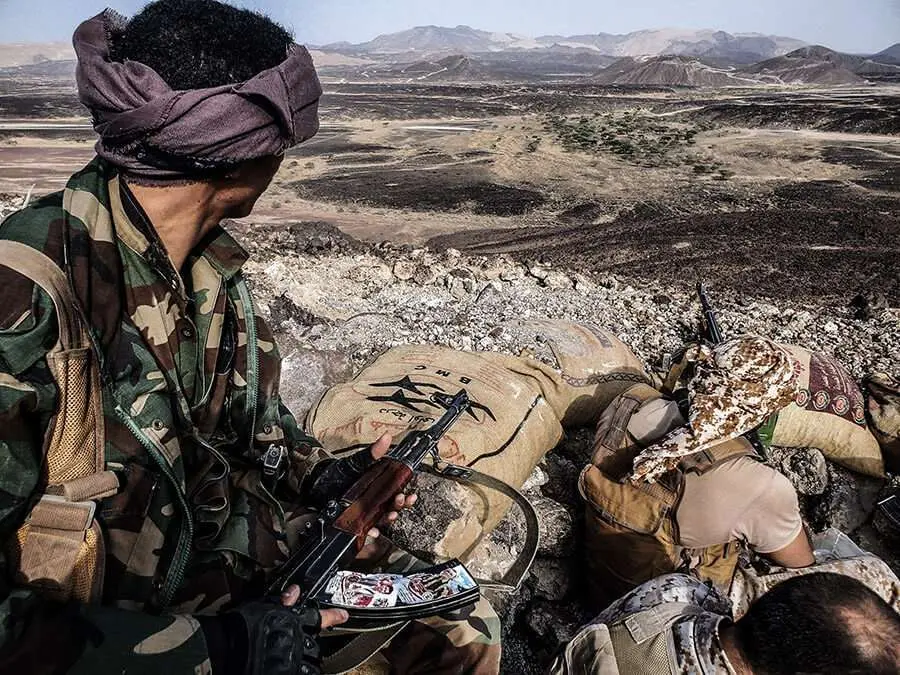New Houthi attack on UAE and Saudi Arabia raises tensions in the region

A new Houthi attack targeting the UAE has raised tensions in the Yemeni conflict. This time, the attack, carried out by two Houthi ballistic missiles, was intercepted and destroyed. Although no casualties were reported in the attempted attack, the remains of the intercepted missiles landed in areas around Abu Dhabi, resulting in a variety of damage.
In addition, insurgents have claimed responsibility for a new attack on the southern Saudi Arabian province of Yizan, an attack that left two people wounded. The Shi'ite group's spokesman, Yahya Sarea, said their forces were able to attack "sensitive targets in the capital of the Emirati enemy with a large number of ballistic missiles", in which they were able to attack "sensitive targets" as well as "vital and important areas in Dubai".

The offensive comes just a week after the Houthis claimed responsibility for a drone attack in an industrial area of the UAE capital, near the National Oil Company (ADNOC), which killed several people and injured six. In response, the Saudi-led Arab coalition announced a series of air strikes on Yemen's capital, Sana'a, killing at least 20 people, according to Reuters.
The internationalisation of the Yemeni civil war has pitted different political actors against each other, as well as different powers. It is for this reason that the Arab League has called on the international community to consider the Houthis as a "terrorist group". This request, made at an extraordinary session in Cairo, also called on the Security Council to adopt "a firm and united stance" in order to stop the insurgents' attacks.

Alongside this, the pan-Arab body has backed the UAE's right to respond in "self-defence" to answer "aggression under international law". US President Joe Biden also declared at a press conference his "reconsideration" of re-listing the Houthis as a terrorist group. This possible action would reverse the decision led by former President Donald Trump after he declared his decision to remove the Yemeni insurgents from the list.
Within the geopolitics of the Middle East, Yemen has positioned itself as a momentous enclave that serves as a theatre of confrontation between Saudi Arabia and Iran. Saudi Arabia, a supporter of the Sunni cause, took a stand in defence of former president Hadi, who at the same time enjoys wide international recognition. On the other hand, Iran decided to back the Houthi insurgents, a group that practices Shiism, which served as a pretext for these two powers to confront each other in the Arab country.

Although Iran has denied its presence in the civil conflict in Yemen, there is ample evidence of Iran's involvement in the conflict through military, arms and economic support.
In support of Saudi Arabia, several Sunni countries have decided to back the country through an Arab coalition that includes Qatar, the United Arab Emirates, Jordan, Egypt, Morocco and Sudan, among others.
On the other hand, the US has been a key external actor in the development of the war following its support for the Arab coalition. The US delegation has provided both economic and military aid with the aim of stabilising the situation in the country as part of the anti-terrorist strategy promoted by Obama.

The internationalisation of the conflict has been one of the main consequences of the new global power configuration. Yemen, as has happened in other countries such as Syria, has become a stage for the power struggle for control of the Middle East, as well as being in itself the direct confrontation between the insurgents and the Arab coalition.
This conflict, considered "the worst humanitarian tragedy in the world" according to the UN, is still far from finding a tangible solution. The UN Secretary General's spokesperson, Stéphane Dujarric, continues to advocate "a political settlement negotiated through the parties", something which, for the moment, does not seem likely to happen.








